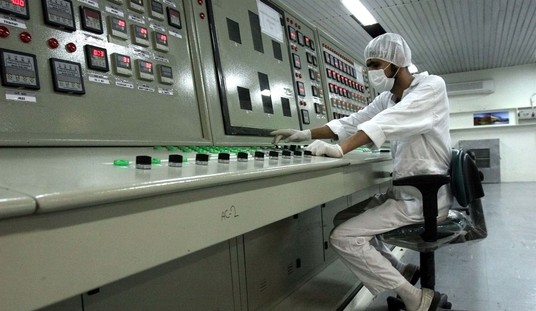Cultural adaptation is a perniciously slow process. It has been a decade since Bernard Lewis' classic "What Went Wrong?" appeared in the wake of al-Qaida's 9/11 massacres. That short book reflected on the failure of Muslim nations (Ottoman Turkey in the main) to compete with Western Europe's political and technological surge, which began in the 15th and 16th centuries.
Geographic distance and slow transport and communication shielded the vast majority of Muslim populations from knowledge of the Islamic world's loss of economic and military dominance. But, Lewis wrote, "In the course of the twentieth century it became abundantly clear that things had gone badly wrong in the Middle East -- and, indeed, in all the lands of Islam. Compared with Christendom, its rival for more than a millennium, the world of Islam had become poor, weak, and ignorant."
Economic, political and technological facts challenged Muslims' pride. They also challenged assertions by Muslim religious and political leaders that Islamic doctrine (at least as interpreted by said leaders) provided the perfect model for organizing and sustaining human spiritual and political life.
How to modernize a culturally Islamic society is a question that is at least two centuries old, but it lies at the root of much of the worst bloodletting on the planet since World War II. Al-Qaida's 9/11 terror attacks were, in part, a statement by violent Islamists about their terms for Muslim modernization. The question also frames the various Arab Spring 2011 revolts and to a degree the external and internal wars waged by Iran's Islamic republic.
Unfortunately, the revolutionaries, the ayatollahs, and the rest of us won't know the answer for another four or five decades -- if even then. The fragmented struggles within Muslim societies and their ripple effects throughout the rest of the world will continue.
Recommended
Two books published this past year provide useful insights for U.S. policymakers who must engage this struggle, whether they like it or not. "Counterstrike" (Times Books), by Eric Schmitt and Thom Shanker (both of The New York Times), has been widely reviewed. The book documents a decade of U.S. intelligence and strike operations against al-Qaida.
The authors had the opportunity to include the raid that killed Osama bin Laden, providing a Hollywood denouement of sorts. However, killing one terrorist perpetrator doesn't kill the idea of al-Qaida. In the minds of alienated young men, al-Qaida manages to connect Muslim grievance to millennial violence. The fight with al-Qaida-type murderers will continue.
"Counterstrike's" chapter on the exploitation of intelligence provides a historical accounting of the importance of understanding that every operation (diplomatic, military, economic, etc.) is also an intelligence-gathering and -expanding operation. This is an old truth the authors admirably illustrate. But the authors' most interesting comment is that "America must adopt a culture of resilience." They provide the barest sketch of what this means, but at least they acknowledge it. America has been slow to make this cultural adaptation.
Kevin McGrath's "Confronting al-Qaeda" (Naval Institute Press) was published prior to bin Laden's demise, so it must bear that degree of superficial staleness. The book would also benefit from "Counterstrike's" more detailed understanding of Iraq as an intelligence-gathering theater for the U.S. in its war with al-Qaida.
The book's utility lies in its insistence on waging politics to undermine the appeal of violent Islamist extremists. In this vein, McGrath echoes several recent books advocating potent information and counter-argumentation programs (e.g., Youssef H. Aboul-Enein's "Militant Islamist Ideology," published in 2010). McGrath notes "the political sentiments upon which al-Qaida capitalizes will always exist" so the U.S. goal should be to prey upon the internal divisions that exist within militant Islamist organizations. Al-Qaida would eventually be reduced "to a series of localized national movements" and lose its global veneer.
This may already be happening, in part because 10 years of war have damaged the organization and killed off senior leaders with global organization skills. Like Schmitt and Shanker, and for that matter, Bernard Lewis, McGrath knows the struggle will be onerous and long.

























Join the conversation as a VIP Member